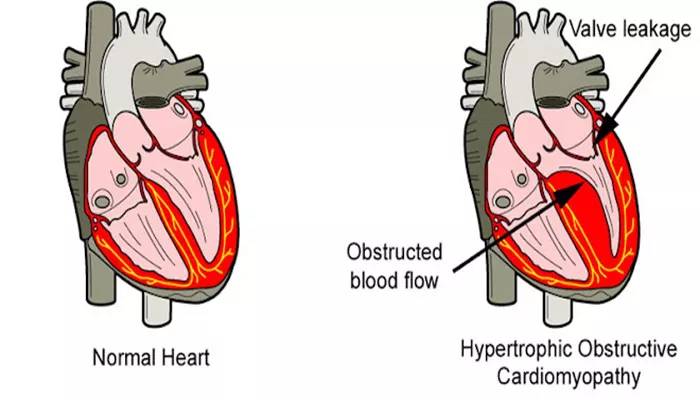Myocarditis and dilated cardiomyopathy (DCM) are both serious conditions that affect the heart, yet they are distinct in their pathophysiology and implications. Myocarditis refers to inflammation of the heart muscle (myocardium), often caused by infections, autoimmune responses, or exposure to toxins. Dilated cardiomyopathy is a condition characterized by the enlargement and weakening of the heart’s ventricles, leading to impaired pumping efficiency. Understanding how myocarditis can lead to DCM is crucial for early diagnosis, management, and treatment of affected individuals.
What Is Myocarditis?
Myocarditis is an inflammatory condition of the heart muscle, primarily caused by viral infections such as enteroviruses (e.g., Coxsackievirus), adenoviruses, and, more recently, SARS-CoV-2. Bacterial, fungal, and parasitic infections can also cause myocarditis, although they are less common. Non-infectious causes include autoimmune diseases like systemic lupus erythematosus, toxic reactions to drugs or alcohol, and hypersensitivity reactions.
Symptoms And Diagnosis
Symptoms of myocarditis can vary widely, from asymptomatic cases to severe heart failure. Common symptoms include chest pain, fatigue, shortness of breath, palpitations, and flu-like symptoms. Severe cases can present with symptoms of heart failure, such as edema and syncope.
Diagnosis typically involves a combination of clinical evaluation, electrocardiograms (ECG), echocardiography, cardiac MRI, and endomyocardial biopsy. Blood tests for markers of inflammation and cardiac enzymes are also commonly used.
What Is Dilated Cardiomyopathy?
Definition and Causes
Dilated cardiomyopathy is a condition where the heart’s ventricles become enlarged and weakened, reducing the heart’s ability to pump blood effectively. This condition can be idiopathic (of unknown cause) or secondary to various factors, including genetic mutations, chronic alcohol abuse, and untreated hypertension. Myocarditis is a significant cause of secondary DCM.
Symptoms and Diagnosis
Patients with DCM often present with symptoms of heart failure, including fatigue, shortness of breath, reduced exercise tolerance, and peripheral edema. Arrhythmias and thromboembolic events are also common.
Diagnosis involves imaging techniques such as echocardiography, which shows ventricular dilation and reduced ejection fraction. Cardiac MRI can provide detailed images of myocardial structure and function, and genetic testing may be recommended in familial cases.
Pathophysiology of Myocarditis Leading to Dilated Cardiomyopathy
Initial Inflammatory Response
The initial phase of myocarditis involves an inflammatory response triggered by infection or other causes. The body’s immune system responds to the offending agent, resulting in the infiltration of inflammatory cells into the myocardium.
This process can lead to direct damage to the cardiac muscle cells (myocytes) and the release of cytokines, which further propagate inflammation.
SEE ALSO: What Is The First Choice for Myocarditis Treatment?
Myocyte Injury and Death
The inflammatory response can cause significant myocyte injury and death. Cytotoxic T-cells and macrophages release substances that can directly damage myocytes, while the release of cytokines like tumor necrosis factor-alpha (TNF-α) and interleukins exacerbates the inflammatory process. The death of myocytes leads to the loss of functional myocardial tissue, which impairs the heart’s contractile ability.
Fibrosis and Remodeling
As myocytes die and are cleared by the immune system, the damaged areas are often replaced by fibrotic tissue. This fibrosis disrupts the normal architecture of the myocardium, leading to impaired electrical conduction and further reducing the heart’s pumping efficiency. The heart undergoes a remodeling process where the ventricles become dilated and the walls thinned, a hallmark of DCM.
Chronic Inflammation and Autoimmunity
In some cases, the initial infectious or toxic insult may resolve, but the inflammatory process persists. Chronic inflammation can lead to ongoing myocyte damage and fibrosis. Additionally, some patients may develop an autoimmune response, where the immune system mistakenly attacks the heart muscle. This autoimmunity can sustain and perpetuate the inflammatory process, leading to chronic myocarditis and progression to DCM.
Clinical Implications And Management
Prognosis
The prognosis for patients with myocarditis-induced DCM varies widely. Some patients may recover completely with appropriate treatment, while others may progress to chronic heart failure requiring lifelong management. Factors influencing prognosis include the severity of the initial myocarditis, the extent of myocardial damage, and the patient’s overall health and comorbidities.
Treatment Strategies
Treatment for myocarditis-induced DCM focuses on managing heartfailure symptoms, reducing inflammation, and preventing further myocardial damage.
Heart Failure Management
Medications: Standard heart failure medications such as ACE inhibitors, beta-blockers, diuretics, and aldosterone antagonists are used to manage symptoms and improve cardiac function.
Lifestyle Modifications: Patients are advised to follow a low-sodium diet, engage in moderate exercise as tolerated, and avoid alcohol and smoking.
Anti-Inflammatory and Immunosuppressive Therapy
Anti-inflammatory Drugs: Nonsteroidal anti-inflammatory drugs (NSAIDs) and corticosteroids may be used to reduce inflammation in certain cases.
Immunosuppressive Therapy: In cases of autoimmune myocarditis, immunosuppressive drugs such as azathioprine, methotrexate, or intravenous immunoglobulins (IVIG) may be prescribed.
Advanced Therapies
Mechanical Support: In severe cases, patients may require mechanical circulatory support, such as ventricular assist devices (VADs).
Heart Transplantation: For patients with end-stage heart failure refractory to medical therapy, heart transplantation may be the only viable option.
Research And Future Directions
Ongoing research aims to better understand the mechanisms linking myocarditis and DCM, identify biomarkers for early detection, and develop targeted therapies to prevent progression. Advances in genetic research, immunomodulation, and regenerative medicine hold promise for improving outcomes for patients with myocarditis-induced DCM.
Genetic And Molecular Studies
Identifying genetic mutations and molecular pathways involved in the susceptibility to myocarditis and its progression to DCM could lead to personalized treatment approaches. Understanding the role of specific cytokines and immune pathways in the inflammatory process may also uncover new therapeutic targets.
Regenerative Medicine
Stem cell therapy and other regenerative approaches are being investigated as potential treatments to repair myocardial damage and restore cardiac function. While still in experimental stages, these therapies offer hope for reversing the damage caused by myocarditis.
Conclusion
Myocarditis and dilated cardiomyopathy are interconnected conditions with significant clinical implications. The inflammatory damage caused by myocarditis can lead to the development of DCM through myocyte injury, fibrosis, and chronic inflammation. Early diagnosis and appropriate management are crucial to improving outcomes for affected patients. Advances in research and treatment hold promise for better understanding and combating these complex heart diseases.

